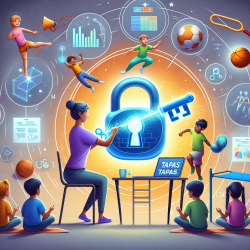Introduction
In today's fast-paced world, the mental well-being of adolescents is a growing concern. The prevalence of mental disorders among youth is alarming, and the need for effective interventions is more critical than ever. Mindfulness-based interventions (MBIs) have emerged as a promising approach to enhance self-regulation skills in early adolescents, which are crucial for emotional, attentional, and behavioral development. A recent study titled Effects of Two Online Mindfulness-Based Interventions for Early Adolescents for Attentional, Emotional, and Behavioral Self-Regulation sheds light on how online MBIs can be effectively implemented to support this demographic.
Understanding the Research
The study explored the impact of two distinct MBIs on early adolescents, focusing on attentional and emotional self-regulation. Conducted online over eight weeks, the interventions included weekly one-hour sessions complemented by home practices. Participants were divided into three groups: one focusing on attentional practices, another on emotional recognition and expression, and a control group.
The results were promising. Both intervention groups showed improvements in mindfulness and emotional and behavioral regulation. However, significant enhancements in attentional self-regulation were observed only in the group focused on attentional practices. This finding underscores the importance of tailoring interventions to specific self-regulation skills.
Implications for Practitioners
For practitioners in the field of special education and therapy, these findings offer valuable insights into enhancing intervention strategies. Here are some practical takeaways:
- Customizing Interventions: Tailor mindfulness programs to address specific self-regulation skills. For instance, focus on attentional practices for students struggling with concentration and attention.
- Incorporating Online Modalities: The success of online MBIs in this study highlights the potential for remote interventions, making therapy more accessible and flexible.
- Structured Programs: Implement structured, manualized programs with clear objectives and practices, ensuring consistency and effectiveness.
- Parental Involvement: Engage parents in the intervention process, providing them with resources and guidance to support their children's mindfulness practices at home.
Encouraging Further Research
While the study provides a solid foundation, further research is essential to refine and expand these findings. Practitioners are encouraged to explore the following areas:
- Longitudinal Studies: Investigate the long-term effects of MBIs on self-regulation and mental health outcomes in adolescents.
- Diverse Populations: Conduct studies across diverse cultural and socioeconomic backgrounds to ensure the generalizability of findings.
- Integration with Other Therapies: Explore the potential of combining MBIs with other therapeutic approaches for comprehensive mental health support.
Conclusion
Online mindfulness-based interventions offer a promising avenue for enhancing self-regulation skills in early adolescents. By customizing interventions and leveraging online modalities, practitioners can effectively support the mental well-being of their students. For those interested in delving deeper into the research, the original study provides a comprehensive analysis of the interventions and their outcomes.
To read the original research paper, please follow this link: Effects of Two Online Mindfulness-Based Interventions for Early Adolescents for Attentional, Emotional, and Behavioral Self-Regulation.










